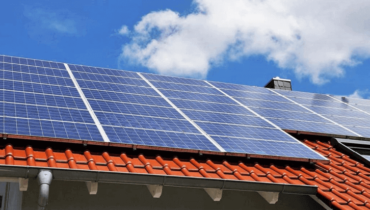Solar panel systems are becoming increasingly popular as a way to generate renewable energy for homes and businesses. However, choosing the right battery for your solar panel system can be a daunting task. In this article, we will discuss the factors you need to consider when selecting a battery for your solar panel system.
Table of Contents
Types of Solar Panel Batteries
There are three primary types of batteries that are commonly used for solar panel systems: lead-acid, lithium-ion, and saltwater batteries. Each of these batteries has its advantages and disadvantages.
Lead-Acid Batteries
Lead-acid batteries are the most common type of battery used for solar panel systems. They are relatively inexpensive and have a long lifespan if they are well-maintained. However, they are heavy and require regular maintenance to ensure optimal performance.
Lithium-Ion Batteries
Lithium-ion batteries are becoming more popular for solar panel systems because they are lightweight and have a long lifespan. They also require very little maintenance. However, they are more expensive than lead-acid batteries.
Saltwater Batteries
Saltwater batteries are a relatively new type of battery that is becoming more popular for solar panel systems. They are environmentally friendly and have a long lifespan. However, they are currently more expensive than lead-acid batteries and not as widely available.
Battery Capacity
The capacity of a battery is the amount of energy it can store. The capacity of a battery is measured in kilowatt-hours (kWh). When choosing a battery for your solar panel system, you need to consider the amount of energy you will need to store. This will depend on your energy usage and the size of your solar panel system.
Depth of Discharge
The depth of discharge (DoD) is the amount of energy that can be safely drawn from a battery without damaging it. When choosing a battery for your solar panel system, you need to consider the depth of discharge. Lead-acid batteries have a lower depth of discharge than lithium-ion batteries. Lithium-ion batteries can be discharged up to 80% without damaging the battery, while lead-acid batteries should not be discharged more than 50%.
Battery Efficiency
Battery efficiency is the amount of energy that can be stored in a battery compared to the amount of energy it takes to charge it. When choosing a battery for your solar panel system, you need to consider the battery’s efficiency. Lithium-ion batteries are more efficient than lead-acid batteries.
Cost
The cost of a battery is an important factor to consider when choosing a battery for your solar panel system. Lead-acid batteries are the least expensive option, but they require more maintenance and have a shorter lifespan than lithium-ion batteries. Lithium-ion batteries are more expensive but require very little maintenance and have a longer lifespan.
Conclusion
In conclusion, choosing the right battery for your solar panel system is crucial for ensuring a reliable and efficient source of energy. Choosing the right battery for your solar panel system is critical to ensure that you have a reliable and efficient source of energy. Consider the type of battery, battery capacity, depth of discharge, battery efficiency, and cost when selecting a battery for your solar panel system. With the right battery, you can enjoy the benefits of renewable energy and reduce your carbon footprint.

